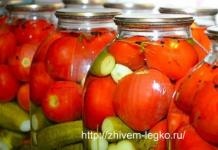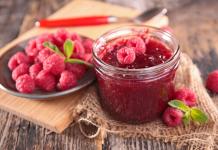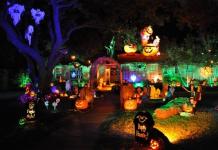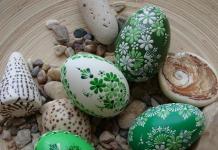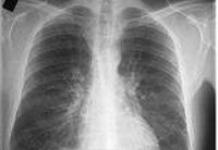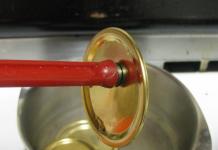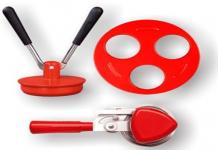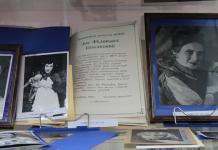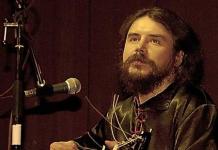Приветствую, мой дорогой читатель.
Помните, что я все время повторяю: практика, практика и только практика! Если вы уже знаете , то могу вас поздравить - мы переходим на следующие уровень - «Past Continuous: упражнения» !
Сегодня нас с вами ждет подборка самых интересных и полезных упражнений с ответами, которые помогут вам быстро усвоить правило по теме. Садитесь поудобнее, берите листик с ручной и начинайте практиковаться онлайн прямо сейчас.
Для 5 класса, где иногда начинают изучать данную тему, я советую сделать следующие упражнения.
Упражнение 1.
- She (to write) a letter at 6 p.m last evening.
- Her father (to go) to the art gallery when he (to meet) her mother.
- At 8.20 yesterday morning my mother (to drive) me to the university.
- They (to sit) at the café at that time.
- She (to study) in the library when they suddenly called.
Упражнение 2.
Вставьте правильную форму глагола.
- We had a family evening yesterday. My grandfather and my father (to play) chess, while my grandmother (to knit). My mother (to clean) while I and my brother (to read).
- I (to walk) on the street, when I (to see) a man fell. I called the emergency and (to wait) for help. I (to sit) near the man, when the medicals arrived.
- Tony and Ann (to ride) through the forest. The sun (to shine) bright and the birds (to sing) beautifully.
А вот упражнения для 6 класса , где эту тему уже повторяют, а не учат, становятся уже немного сложнее.
Упражнение 3.
Вставьте слова в правильной форме.
- Tom (to walk) home when the storm (to begin).
- What (you \ to read) when they came in?
- While I (to dig) in the garden, I (to hurt) my arm.
- I (to wait) for my flight yesterday morning.
- How fast (she\to drive) when the accident (to happen)?
- We (to have) a dinner when she called.
- At 10.35 we (to play) tennis in the club.
Упражнение 4.
Преобразуйте предложение, используя слова « as , while , when» .
- Kim was crossing the street. He saw Jane.
- I was serving the table. She dropped a glass.
- She was driving home. The engine broke down.
- Jake and Kiley were leaving the shop. The police officer stopped them.
- The children were playing. Their mother was cooking.
Для учеников 7 класса или даже 8 класса будет намного интереснее и значительно полезнее делать задания на перевод. Знаний правил у них уже достаточно, да и практики тоже, поэтому стоит взяться за что-то сложнее.
Упражнение 5.
Переведите на английский язык.
- В прошлый вторник в 5 часов вечера у них была конференция.
- Мы накрывали на стол, когда приехали гости.
- Я уже спал, когда услышал стук в дверь.
- Он шел по дороге, когда поскользнулся на шкурке банана.
- Мама готовила, пока я делал уроки.
- Он читал контракт, когда позвонил его босс.
Это ведь было не сложно, правда? Уверена, что вы справились со всем без труда, ведь вы же все знаете. Но если у вас возникли какие-то проблемы или вопросы, в которых вам не удалось разобраться - пишите в комментариях. Я с удовольствие дам вам ответы на все ваши вопросы.
А если вам хочется еще больше информации, еще больше практики, еще больше английского - подписывайтесь на рассылку моего блога. Обещаю, вас ждет только самое интересное.
До новых встреч, мои дорогие.
Предлагаю закрепить эту тему в сравнении с Past Simple — переходите и практикуйтесь дальше.
Ответы:
Упражнение 1.
- Was writing.
- Was going, met.
- Was driving.
- Were sitting.
- Was studying.
Упражнение 2.
- Were playing, was knitting, was cleaning, were reading.
- Was walking, saw, was waiting, was sitting.
- Was riding, was shining, were singing.
Упражнение 3.
- Was walking, began.
- Were you reading.
- Was digging, hurt.
- Was waiting.
- Was she driving, happened.
- Were having,
- Were playing.
Упражнение 4.
- Kim was crossing the street when he saw Jane.
- I was serving the table when she dropped a glass.
- As she was driving home the engine broke down.
- Jake and Kiley were leaving the shop when the police officer stopped them.
- The children were playing while their mother was cooking.
Упражнение 5.
- They were having a conference last Tuesday at 5 o"clock in the evening.
- We were serving the table when guests arrived.
- I was already sleeping when I heard a knock at the door.
- He was walking down the road when he slipped on the banana skin.
- Mother was cooking while I was doing my homework.
- He was reading the contract, when his boss called.
Тренировочные упражнения по английскому языку на употребление грамматических времен Past Simple и Past Continuous.
В результате изучения английского языка обучающийся 6 класса должен знать/понимать:
Основные значения изученных лексических единиц (слов, словосочетаний); основные способы словообразования (аффиксация, словосложение, конверсия);
Особенности структуры простых и сложных предложений изучаемого иностранного языка; интонацию различных коммуникативных типов предложений;
Признаки изученных грамматических явлений (видо-временных форм глаголов - PresentSimple, PresentContinuous, PastSimple, PastContinuous, FutureSimple, PresentPerfect, модальных глаголов, артиклей, существительных, степеней сравнения прилагательных, местоимений, числительных, предлогов);
Основные нормы речевого этикета (реплики-клише, наиболее распространенная оценочная лексика), принятые в стране изучаемого языка;
Роль владения иностранными языками в современном мире, особенности образа жизни, быта, культуры стран изучаемого языка (всемирно известные достопримечательности, выдающиеся люди и их вклад в мировую культуру), сходство и различия в традициях своей страны и стран изучаемого языка.
Данные упражнения направлены на закрепление грамматических навыков по теме “ Past Simple и Past Continuous Tenses”.
Тренировочные упражнения по английскому языку на употребление грамматических времен Past Simple и Past Continuous.
Упражнение -1.
- I (to play) computer games yesterday.
- I (to play) computer games at five o"clock yesterday.
- He (to play) computer games from two till three o’clock yesterday.
- We (to play) computer games the whole evening yesterday.
- What Nick (to do) when you came to his place?
- What you (to do) when I rang you up?
- I (not to sleep) at nine o"clock yesterday.
- What he (to do) yesterday? - He (to read) a book.
- What he (to do) the whole evening yesterday? - He (to read) a book.
- She (to sleep) when you came home?
- My brother (not to play) tennis yesterday. He (to play) tennis the day before yesterday.
- My sister (not to play) the piano at four o"clock yesterday. She (to play) the piano the whole evening.
- When I came into the kitchen, my mother (to cook).
- She (to cook) the whole day yesterday.
- We (to wash) the floor in our flat yesterday.
- We (to wash) the floor in our flat from three till four yesterday.
- You (to do) your homework yesterday?
- You (to do) your homework from eight till ten yesterday?
- Why she (to sleep) at seven o"clock yesterday?
- He (to sit) at the table the whole evening yesterday.
Упражнения - 2.
- I (to go) to the cinema yesterday.
- I (to go) to the cinema at four o"clock yesterday.
- I (to go) to the cinema when you met me.
- I (to do) my homework the whole evening yesterday.
- I (to do) my homework when mother came home.
- I (to do) my homework yesterday.
- I (to do) my homework from five till eight yesterday.
- I (to do) my homework at six o"clock yesterday.
- I (not to play) the piano yesterday. I (to write) a letter to my friend. 1
- I (not to play) the piano at four o"clock yesterday. I (to read) a book.
- He (not to sleep) when father came home. He (to do) his homework.
- When we were in the country last summer, I (to go) to the wood one day. In the wood I (to find) a little fox cub. I (to bring) it home. I (to decide) to tame the cub. Every day I (to feed) it and (to take) care of it. I (to tame) it the whole summer. Now the fox cub is quite tame. It lives in my house.
- When I (to go) to school the day before yesterday, I met Mike and Pete. They (to talk) and (to laugh). They told me a funny story. Soon I (to laugh), too. I still (to laugh) when we came to school. After school I (to tell) this story at home. My father and mother (to like) it very much.
Упражнения - 3.
- When I (to come) home, my little sister (to sleep).
- When Nick (to come) home, his brother (to play) with his toys.
- When mother (to come) home, I (to do) my homework.
- When father (to come) home, Pete (to sleep).
- When mother (to come) home, the children (to play) on the carpet.
- When I (to get) up, my mother and father (to drink) tea.
- When I (to come) to my friend"s place, he (to watch) TV.
- When I (to see) my friends, they (to play) football.
- When I (to open) the door, the cat (to sit) on the table.
- When Kate (to open) the door, the children (to dance) round the fir-tree.
- When Tom (to cross) the street, he (to fall).
- When I (to go) to school, I (to meet) my friend.
- When we (to go) to the cinema, we (to meet) grandmother.
- When grandmother (to go) home, she (to see) many children in the yard.
- When Henry (to walk) about in the forest, he (to find) a bear cub.
- When we (to walk) about in the forest, we (to see) a hare.
- When I (to wash) the floor, I (to find) my old toy under the sofa.
- When granny (to read) a book on the sofa, she (to fall) asleep.
- When I (to play) in the yard, I suddenly (to see) my old friend.
- When Nick (to run) about in the yard, he (to fall).
Упражнения - 4.
- They (to drink) tea when I (to come) home.
- He (to walk) along the river when a boat (to pass).
- The old man (to think) about his plan when he (to fall) asleep.
- We (to listen) to an interesting lecture yesterday.
- When I (to enter) the classroom, the teacher (to write) words on the blackboard and the pupils (to copy) them into their exercise-books.
- They (to get) ready to go out when it (to begin) raining.
- Yesterday at one o"clock I (to have) lunch at the canteen.
- When he (to come) in, I (to do) my exercises.
- What you (to do) at eight o"clock yesterday?
- At this time yesterday I (to go) home.
- You (to sleep) when I (to go) out.
- He (to read) on the sofa when I (to come) in and (to sit) down beside him.
- I (to walk) along the street with my friend when a tram (to pass).
- She (to look) out of the window when I (to see) her.
- We (to answer) the teacher"s questions when the headmistress (to enter) the classroom.
Упражнения - 5.
- When I (to ring) up my friend, he (to sleep).
- When grandfather (to watch) TV, he (to fall) asleep.
- When my friend (to come) to see me, I (to do) my homework.
- When I (to go) to the stadium, I (to meet) Kate and Ann.
- When Nick (to ring) me up yesterday, I (to help) mother.
- When the children (to walk) through the wood, they (to see) a fox.
- When I (to come) home, my sister (to wash) the floor.
- When Mike (to play) in the yard, he (to find) a ball.
- When I (to draw) yesterday, I (to break) two pencils.
- When I (to meet) Tom, he (to go) to the shop.
- When I (to look) out of the window, the children (to play) hide-and-seek.
- I (to go) to the theatre yesterday.
- At seven o"clock yesterday I (to go) to the theatre.
- What you (to do) at 5 o"clock yesterday? -I (to play) the piano.
- When I (to come) to school, the children (to stand) near the classroom.
- We (to play) in the yard the whole evening yesterday.
- When I (to prepare) breakfast in the morning, I (to cut) my finger.
- Last year I (to go) to the United States.
- You (to go) to Great Britain last year? - No, I (to go) to France.
- What you (to do) yesterday? — I (to translate) a very long art
Упражнения - 6.
- He (to get) up at seven o"clock yesterday.
- Father (to come) home at six o"clock yesterday.
- I (to read) a book at six o"clock yesterday.
- She (to fall) asleep at eleven o"clock yesterday.
- Moth-er (to drink) tea at eleven o"clock yesterday.
- Father (to watch) TV at ten o"clock yesterday.
- I (to go) to bed at nine o"clock yesterday.
- I (to finish) my homework at nine o"clock yesterday.
- I (to play) the piano at five o"clock yesterday.
- He (to begin) to do his homework at four o"clock yester-day.
- She (to wash) the floor at four o"clock yesterday.
- I (to meet) Nick at three o"clock yester-day.
- When I (to come) home, Kate (to play) the piano.
- When I (to meet) John, he (to go) to the railway station.
- When I (to go) to the museum, I (to see) a big crowd of people in the street.
- They (to play) in the yard in the evening yesterday.
- They (to play) in the yard the whole evening yesterday.
- I (to clean) my teeth at eight o"clock in the morning yesterday.
- We (to go) to the wood in summer.
- When the teacher (to open) the door of the classroom, the pupils (to sit) at their desks.
Упражнения - 7.
1. At this time yesterday I (to sit) at the theatre.
2. He (to come) back to St. Petersburg on the 15th of January.
3. I (to go) to the institute when I (to see) him.
4. At this time yesterday we (to have) dinner.
5. He (to write) a letter when I (to come) in.
6. He (to make) a report when I (to leave) the meeting.
7. Yesterday he (to write) a letter to his friend.
8. When I (to look) at them, they (to smile) at me.
9. What you (to do) at six o"clock yesterday?
10. I (to go) to bed at half past eleven.
11. Yesterday the lesson (to begin) at nine o"clock.
12. The cat (to take) a piece of fish "and then (to run) away.
13. He (to read) a newspaper when I (to come) in.
14. Yesterday I (to get) up at seven o"clock.
15. The train (to start) at fifteen minutes to ten.
16. He (to put) on his coat and cap, (to open) the door and (to go) out.
Упражнения - 8.
1.I (to feed) my cat with fish yesterday.
2. What you (to do) at four o"clock yesterday? — I (to feed) my cat.
3. What your brother (to do) yesterday? -He (to play) computer games.
4. I (to begin) re-pairing my camera at six o"clock yesterday.
5. At five o"clock yesterday Helen (to cook) soup.
6. We (to play) badminton from nine till eleven yesterday.
7. Kate (not to go) for a walk yesterday. She (to write) a composition the whole day yesterday. 8. When your father (to come) home yesterday? He (to come) home at seven o"clock.
9. When my father (to come) home yesterday, my mother (to make) supper.
10. We (not to go) on a tramp last summer.
11. What you (to do) when your sister (to come) home yesterday?
12. You (to have) supper at nine o"clock yesterday?
13. He (not to go) to the shop yesterday.
14. Nick (to go) to bed at ten o"clock yesterday.
15. Rick (to sleep) at eleven o"clock yesterday.
16. When we (to play) in the yard yesterday, it suddenly (to start) raining heavily.
17. I (to see) Mike when he (to cross) the street.
18. He (to begin) repairing his bicycle in the morning yesterday.
19. He (to repair) his bicycle the whole day yesterday.
20. He (to finish) repairing his bicycle in the evening yesterday.
Ответы к упражнениям
Упражнение - 1.
1.I played computer games yesterday.
2. I was playing computer games at five o"clock yesterday.
3. He was playing computer games from two till three yesterday.
4. We were playing computer games the whole evening yesterday.
5. What was Nick doing when you came to his place?
6. What were you doing when I rang you up?
7. I was not sleeping at nine o"clock yesterday.
8. What did he do yesterday? - He read a book.
9. What was he doing the whole evening yesterday?--He was reading a book.
10. Was she sleeping when you came home?
11. My brother did not play tennis yesterday. He played tennis the day before yesterday.
12. My sister was not playing the piano at four o"clock yesterday. She was playing the piano the whole evening.
13. When I came into the kitchen, mother was cooking.
14. She was cooking the whole day yesterday.
15. We washed the floor in our flat yesterday.
16. We were washing the floor in our flat from three till four yesterday.
17. Did you do your homework yesterday?
18. Were you doing your homework from eight till ten yesterday?
19. Why was she sleeping at seven o"clock yesterday?
20. He was sitting at the table the whole evening yesterday.
Упражнение - 2.
1. I went to the cinema yesterday.
2. I was going to the cinema at four o"clock yesterday.
3. I was going to the cinema when you met me.
4. I was doing my homework the whole evening yesterday.
5. I was doing my homework when mother came home.
6. I did my homework yesterday.
7. I was doing my homework from five till eight yesterday.
8. I was doing my homework at six o"clock yesterday.
9. I did not play the piano yesterday. I wrote a letter to my friend.
10. I was not playing the piano at four o"clock yesterday. I was reading a book.
11. He was not sleeping when father came home. He was doing his homework.
12. When we were in the country last summer, I went to the wood one day. In the wood I found a little fox cub. I brought it home. I decided to tame the cub. Every day I fed it and took) care of it. I was taming it the whole summer. Now the fox cub is quite tame. It lives in my house.
13. When I was going to school the day before yesterday, I met Mike and Pete. They were talking and laughing. They told me a funny story. Soon I laughed, too. I was still laughing when we came to school. After school I told this story at home. My father and mother liked it very much.
Упражнение - 3.
1. When I came home, my little sister was sleeping.
2. When Nick came home, his brother was playing with his toys.
3. When mother came home, I was doing my homework.
4. When father came home, Pete was sleeping.
5. When mother came home, the children were playing on the carpet.
6. When I got up, my mother and father were drinking tea.
7. When I came to my friend"s place, he was watching TV.
8. When I saw my friends, they were playing football.
9. When I opened the door, the cat was sitting on the table.
10. When Kate opened the door, the children were dancing round the fir-tree.
11. When Tom was crossing the street, he fell.
12. When I was going to school, I met my friend.
13. When we were going to the cinema, we met grandmother.
14. When grandmother was going home, she saw many children in the yard.
15. When Henry was walking about in the forest, he found a bear cub.
16. When we were walking about in the forest, we saw a hare.
17. When I was washing the floor, I found my old toy under the sofa.
18. When granny was reading a book on the sofa, she fell asleep.
19. When I was playing in the yard, I suddenly saw my old friend.
20. When Nick was running about in the yard, he fell.
Упражнение - 4.
1. They were drinking tea when I came home.
2. He was walking along the river when a boat passed.
3. The old man was thinking about his plan when he fell asleep.
4. We listened to an interesting lecture yesterday.
5. When I entered the classroom, the teacher was writing words on the blackboard and the pupils were copying them into their exercise-books.
6. They were getting ready to go out when it began raining.
7. Yesterday at one o"clock I was having lunch at the canteen.
8. When he came in, I was doing my exercises.
9. What were you doing at eight o"clock yesterday?
10. At this time yesterday I was going home.
11. You were sleeping when I went out.
12. He was reading on the sofa when I came in and sat down beside him.
13. I was walking along the street with my friend when a tram passed.
14. She was looking out of the window when I saw her.
15. We were answering the teacher"s questions when the headmistress entered the classroom.
Упражнение - 5.
1. When I rang up my friend, he was sleeping.
2. When grandfather was watching TV, he fell asleep.
3. When my friend came to see me, I was doing my homework.
4. When I was going to the stadium, I met Kate and Ann.
5. When Nick rang me up yesterday, I was helping mother.
6. When the children were walking through the wood, they saw a fox.
7. When I came home, my sister was washing the floor.
8. When Mike was playing in the yard, he found a ball.
9. When I was drawing yesterday, I broke two pencils.
10. When I met Tom, he was going to the shop.
11. When I looked out of the window, the children were playing hide-and-seek.
12. I went to the theatre yesterday.
13. At seven o"clock yesterday I was going to the theatre.
14. What were you doing at 5 o"clock yesterday? -I was playing the piano.
15. When I came to school, the children were standing near the classroom.
16. We were playing in the yard the whole evening yesterday.
17. When I was prepare breakfast in the morning, I cut my finger.
18. Last year I went to the United States.
19. Did you go to Great Britain last year? - No, I went to France.
20. What did you do yesterday? — I translated a very long article.
Упражнение - 6.
I. He got up at seven o"clock yesterday.
2. Father came home at six o"clock yesterday.
3. I was reading a book at six o"clock yesterday.
4. She fell asleep at eleven o"clock yesterday.
5. Mother was drinking tea at eleven o"clock yesterday.
6. Father was watching TV at ten o"clock yesterday.
7. I went to bed at nine o"clock yesterday.
8. I finished my homework at nine o"clock yesterday.
9. I was playing the piano at five o"clock yesterday.
10. He began to do his homework at four o"clock yester-day.
11. She was washing the floor at four o"clock yesterday.
12. I met Nick at three o"clock yester-day.
13. When I came home, Kate was playing the piano.
14. When I met John, he was going to the railway station.
15. When I was going to the museum, I saw a big crowd of people in the street.
16. They played in the yard in the evening yesterday.
17. They were playing in the yard the whole evening yesterday.
18. I was cleaning my teeth at eight o"clock in the morning yesterday.
19. We went to the wood in summer.
20. When the teacher opened the door of the classroom, the pupils were sitting at their desks.
Упражнение - 7 .
1. At this time yesterday I was sitting at the theatre.
2. He came back to St. Petersburg on the 15th of January.
3. I was going to the institute when I saw him.
4. At this time yesterday we were having dinner.
5. He was writing a letter when I came in.
6. He was making a report when I left the meeting.
7. Yesterday he wrote a letter to his friend.
8. When I looked at them, they were smiling at me.
9. What were you doing at six o"clock yesterday?
10. I went to bed at half past eleven.
11. Yesterday the lesson began at nine o"clock.
12. The cat took a piece of fish and then ran away.
13. He was reading a newspaper when I came in.
14. Yesterday I got up at seven o"clock.
15. The train started at fifteen minutes to ten.
16. He put on his coat and cap, opened the door and went out.
Упражнение - 8.
1.I fed my cat with fish yesterday.
2. What were you doing at four o"clock yesterday? — I was feeding my cat.
3. What did your brother do yesterday? -He played computer games.
4. I began re-pairing my camera at six o"clock yesterday.
5. At five o"clock yesterday Helen was cooking soup.
6. We were playing badminton from nine till eleven yesterday.
7. Kate did not go for a walk yesterday. She was writing a composition the whole day yesterday.
8. When did your father come home yesterday? He came home at seven o"clock.
9. When my father came home yesterday, my mother was making supper.
10. We did not going on a tramp last summer.
11. What were you doing when your sister came home yesterday?
12. Were you having supper at nine o"clock yesterday?
13. He did not go to the shop yesterday.
14. Nick went to bed at ten o"clock yesterday.
15. Rick was sleeping at eleven o"clock yesterday.
16. When we were playing in the yard yesterday, it suddenly started raining heavily.
17. I saw Mike when he was crossing the street.
18. He began repairing his bicycle in the morning yesterday.
19. He was repairing his bicycle the whole day yesterday.
Подружиться с английской грамматикой можно только с помощью тестов и заданий различных видов. Именно этот способ поможет материалу не просто запомниться, а впитаться в вашу память. Какие упражнения эффективны для понимания Past Continuous?
Существуют тысячи различных способов отработки прошедшего продолженного времени. Но все упражнения на past continuous можно разделить на несколько условных групп.
- В первую очередь необходимо отработать особенности образования. Здесь эффективны упражнения и на подстановку нужных вспомогательных глаголов, выбор из предложенных вариантов. Помните, что при добавлении окончания -ing, все же есть некоторые исключения, которые не менее важно запомнить.
- В группе Progressive или Continuous есть как прошедшее, так и настоящее, и будущее времена. Несмотря на огромные различия, указатели очень похожи, порой даже одинаковы. В упражнениях на определение Past, Present или Future важно обращать внимание на все «сигнальные» слова-подсказки.
- Особое затруднение всегда вызывают упражнения на сравнение Past Simple, Past Perfect Continuous и Past Progressive . Ведь порой так сложно определить, какое из действий длится, а где сообщается факт. Ваш лексический запас, ваше умение грамотно переводить и видеть контекст здесь очень пригодится.
- Если вы уже разобрались со всем этим, научились видеть это время в тексте, анализировать, значит, вы с лёгкостью сможете и понимать структуру, и выбирать нужную форму среди других временных отрезков. Пора переходить к более сложным заданиям — переводу упражнений на Past Continuous . А именно, учиться сопоставлять русский и английский текст, правильно переводить предложения, строить самостоятельные рассказы по опорным словам.
- Ну, а если, вы совсем далеко зашли, и весь активный залог уже осмыслен, то пора переходить к страдательному. Past Continuous Passive , так же как и другие времена, имеет некоторые особенности в образовании, употреблении и значении. Вообще, Passive Voice с группой Continuous немного специфичен. Так, например, не существует Future Continuous в страдательном залоге.
Чтобы добиться совершенного владения или просто успешно сдать экзамены, вам необходимо проделать множество упражнений и тестов. Начиная с самых простых заданий, постепенно накапливаются знания, и вы переходите к новому уровню сложности, а, значит, и к следующему уровню владения языком.
Упражнения
- The letter (look for) everywhere.
- She (wash) the floor in our flat the whole morning.
- He (not/play) football from 6 till 7 last week.
- Tom (take) a photograph of me wnen I (not/look).
- When I (go) out into the garden, the sun (shine) and the birds (sing).
- You (see) my friends yesterday, when they (cross) the street?
- We (cook) the whole morning, so we weren’t ready for the party.
- Please, don’t make some much noise. Father (work) in the study.
- We (ski) the whole day yesterday.
- What you (do) at 7 o’cock tomorrow?
- I (read) a text the whole day yesterday.
- We couldn’t sleep last night because our neighbours (have) a party.
- I tried to explain everything to the teacher, but he just (not/understand) what I (talk) about.
- You (take) a bath, when I (phone) you?
- The text (translate) by the students the whole lesson yesterday.
- Just as I (get) to a creepy part of the detective, somebody (ring).
- I (not/drive) very fast when the accident (happen).
- When they (walk) in the park the day before yesterday, they (meet) Pete.
- At school I (dislike) chemistry because the teacher always (pick) me on.
- I (wonder) wheather you could lend some money.
- The children (look after) by a granny the whole holidays last summer.
- Fleming (study) influenza when he (discover) peniciline.
- As I (drive) to London I (listen) to music.
- The problem (discuss) at the meeting at 6 oclock yesterday.
- was being looked for
- was washing
- wasn’t playing
- took/wasn’t looking
- went/was shining/were singing
- did you see/ were crossing
- were cooking
- is working
- were skiing
- will you be doing
- was reading
- were having
- didn’t understand/was talking
- were you taking/phoned
- was being translated
- was getting/ rang
- wasn’t driving/happened
- they were walking/met
- disliked/was picking
- was wondering
- were being looked after
- was studying/ discovered
- was driving/ was listening
- was being discussed
Выполните упражнения ниже, чтобы научиться составлять предложения в Past Continuous и отработать четыре основных случая его употребления.
Как уже говорилось, времена Present Continuous и Past Continuous относятся к одной группе и схожи по построению.
Упражнение 1. Present Continuous и Past be.
СЛУЧАЙ I. Вспомните! Past Continuous употребляется для выражения длительного действия (процесса), которое происходило в определенный момент времени в прошлом.
Упражнение 2. Заполните пропуски глаголом в Past Continuous, используя правильную форму глагола be.
- I ………… reading a book at 4 o’clock yesterday.
- You ………. reading a book…
- He ………. reading a book…
- We ………. reading a book…
- She ………. reading a book…
- They ………. reading a book…
Упражнение 3. Перед вами вчерашний список дел Эмили. Напишите, когда и что она делала. Используйте словосочетания :
read; clean the room; have lunch; wash the dishes; watch TV
- At 9 o’clock she was having breakfast.
- At 9.30 she…
- At 11 a.m…
- At 1 p.m …
- At 3 p.m …
- At 5 p.m …
Упражнение 4. Раскройте скобки , употребляя глаголы в Present Continuous или Past Continuous.
- I ______(to write) an English exercise now. I _______(to write) an English exercise at this time yesterday.
- My little sister _______(to sleep) now. My little sister ________(to sleep) at this time yesterday.
- My friends _______(not to do) their homework now. They _______(to play) volleyball.
- My friends ______(not to do) their homework at seven o’clock yesterday. They ______(to play) volleyball.
- What _____you ______(to do) now? - I _______(to drink) tea. ______you ______(to drink) tea at this time yesterday? - No, I ________(not to drink) tea at this time yesterday, I ________(to eat) a banana.
The Past Continuous Tense – прошедшее длительное время глагола часто путают с прошедшем простым временем (The Past Simple Tense ). Давайте разберемся, чем отличаются эти времена друг от друга , для начала по построению. Для этого выполните упражнение 4.
Упражнение 4. Заполните пропуски глаголом в Past Simple и Past Continuous, используя правильную форму глагола be.

Выполните упражнения ниже, чтобы отработать второй случай употребления Past Continuous.
СЛУЧАЙ II. Вспомните! Past Continuous употребляется для выражения длительного действия (процесса) на фоне которого произошло краткое действие. Краткое действие (в Past Simple) произошло в определенный момент времени в прошлом.
Упражнение 5. Заполните пропуски глаголом в Past Continuous и переведите предложения.
- When I went out into the garden, the sun ______(to shine).
- I __________(to eat) ice cream when you met me in the park yesterday.
- When I came home, Tom ______ (to speak) over the phone.
- Somebody got into the room when we ________(to sleep).
- He saw Jane when she ______ (to cross) the street.
- He ______(to wait) for Jenny when it started raining.
- The woman ______(to have) a bath when she felt bad.
- The man ______(to sit) by the window when he heard the noise.
- We _______(to watch TV) when the door bell rang.
- She______ (to read) when somebody knocked at the door.
- They _____(to talk) about him when he suddenly came in.
Упражнение 6. Спросите по образцу.
ОБРАЗЕЦ. When did you meet Jerry? I met Jerry when I was walking in the park.
- When did you break the window? (play football)
- When did she write the story? (fly to London)
- When did he catch that butterfly? (go through the fields)
- When did you cut your finger? (make dinner)
- When did you saw the rainbow? (walk in the garden)
Упражнение 7. Выберите правильный вариант.
- David (came / was coming) in when the children (wrote / were writing) a test.
- Mike (telephoned / was telephoning) me when I (took I was taking) a shower.
- Mike (spoke / was speaking) to me when his little sister (took / was taking) his book out of his schoolbag.
- We (met / were meeting) them when we (stood I were standing) at the bus stop.
- I (slept I was sleeping) when his mother (came / was coming) back.
- On Monday while he (cooked / was cooking) lunch the postman (brought/ was bringing) him a letter from his friend.
- When the teacher (came / was coming) into the classroom, the children (sat / were sitting) at their desks.
Упражнение 8. Ответьте на вопрос, что делали члены семьи, когда приехала тетя Дженни.
ОБРАЗЕЦ. What were family doing yesterday when aunt Jenny came?
- John / listen to the radio ___________________________________
- his sister / have a bath ___________________________________
- the baby / play ___________________________________
- Father / read a book ___________________________________
- Mother / clean the room _____________________________________
- the cat / sleep ___________________________________
- grandparents / watch TV ____________________________________
Упражнение 9. Составьте предложения по картинкам.

ОБРАЗЕЦ. When we came to see our friend, he was painting the fence.

СЛУЧАЙ III. Вспомните! Past Continuous употребляется для выражения двух длительных действий (процессов), протекающих одновременно в определенный момент времени в прошлом.
Упражнение 10. Составьте предложения по картинкам .
 ОБРАЗЕЦ. While we were talking to our friend, he was painting the fence.
ОБРАЗЕЦ. While we were talking to our friend, he was painting the fence.


Упражнение 11. Составьте предложения по образцу, используя Past Simple или Past Continuous .
ОБРАЗЕЦ. Mum/wash up/telephone/ring. — Mum was washing up when the telephone rang.
- Tom/have a shower/doorbell/ring.
- I/study/Jill/call.
- Dad/have breakfast/post/arrive.
- Nancy/read a book/she/hear a noise.
- John/shop in town/he/meet Kevin.
- The whole class/write a test/I/come.
- We/drive along Park Avenue/something/go wrong in the car.
Упражнение 12. Прочитайте истроию, которая вполне могла случиться. Выберите правильный вариант глагола-действия.
I (met/was meeting) a friend while I (did/was doing) the shopping. While I (paid/was paying) for my things, I (heard/was hearing) someone call my name. I (turned/was turning) round and (saw/seeing) Paula. She (wore/was wearing) bright red coat. We (decided/were deciding) to have a cup of coffee. 6While we (had/ were having) a drink, a waiter (dropped/was dropping) pile of plates. We all (got/were getting) a terrible shock. While the waiter (picked/was picking) up the broken plates, he (cut/was cutting) his finger. We (left/were leaving) the cafe and (said/were saying) goodbye. I (finished/was finishing) my shopping and (went/was going) home.
1. Around me people (to talk) German, Italian and English.
2. Robert (to talk) to some of the other guests on the terrace when Hardy came.
3. Michael (to look) at his watch.
4. All night long the stars (to glitter).
5. Lizzie (to eat) and didn’t raise her head.
6. He drank some of the wine and ate several chunks of bread while he (to wait) for his dinner to come up.
7. The family (to prepare) for the party.
8. She (to argue) that only Belinda knew how to treat men.
9. A few minutes later Dixon (to hurry) through the streets to his bus stop.
10. They moved across the room, which (to start) to fill up, to a vacant corner.
1. They (to write) the test at this time yesterday.
2. He (to work) in the garden from two till five o"clock.
3. We (to watch) television the whole evening.
4. You (to play) football at six o"clock?
5. You (to drink) tea at seven o"clock?
6. He (to draw) from three till four o"clock?
7. Who (to listen) to the radio at this time?
8. It (to rain) the whole day yesterday?
9. They (to skate) at three o"clock?
10. She (not to help) mother about the house from two till six.
Ответы
1. Раскройте скобки, употребляя глаголы в форме Past Continuous.
1. Around me people were talking German, Italian and English.
2. Robert was talking to some of the other guests on the terrace when Hardy came.
3. Michael was looking at his watch.
4. All night long the stars were glittering.
5. Lizzie was eating and didn’t raise her head.
6. He drank some of the wine and ate several chunks of bread while he was waiting for his dinner to come up.
7. The family was preparing for the party.
8. She was arguing that only Belinda knew how to treat men.
9. A few minutes later Dixon was hurrying through the streets to his bus stop.
10. They moved across the room, which was starting to fill up, to a vacant corner.
2. Раскройте скобки, употребляя глаголы в форме Past Continuous.
3. were watching
4. Were you playing football … ?
5. Were you drinking tea … ?
6. Was he drawing … ?
7. Who was listening … ?
8. Was it raining … ?
9. Were they skating … ?
10. She was not (=wasn’t) helping …


